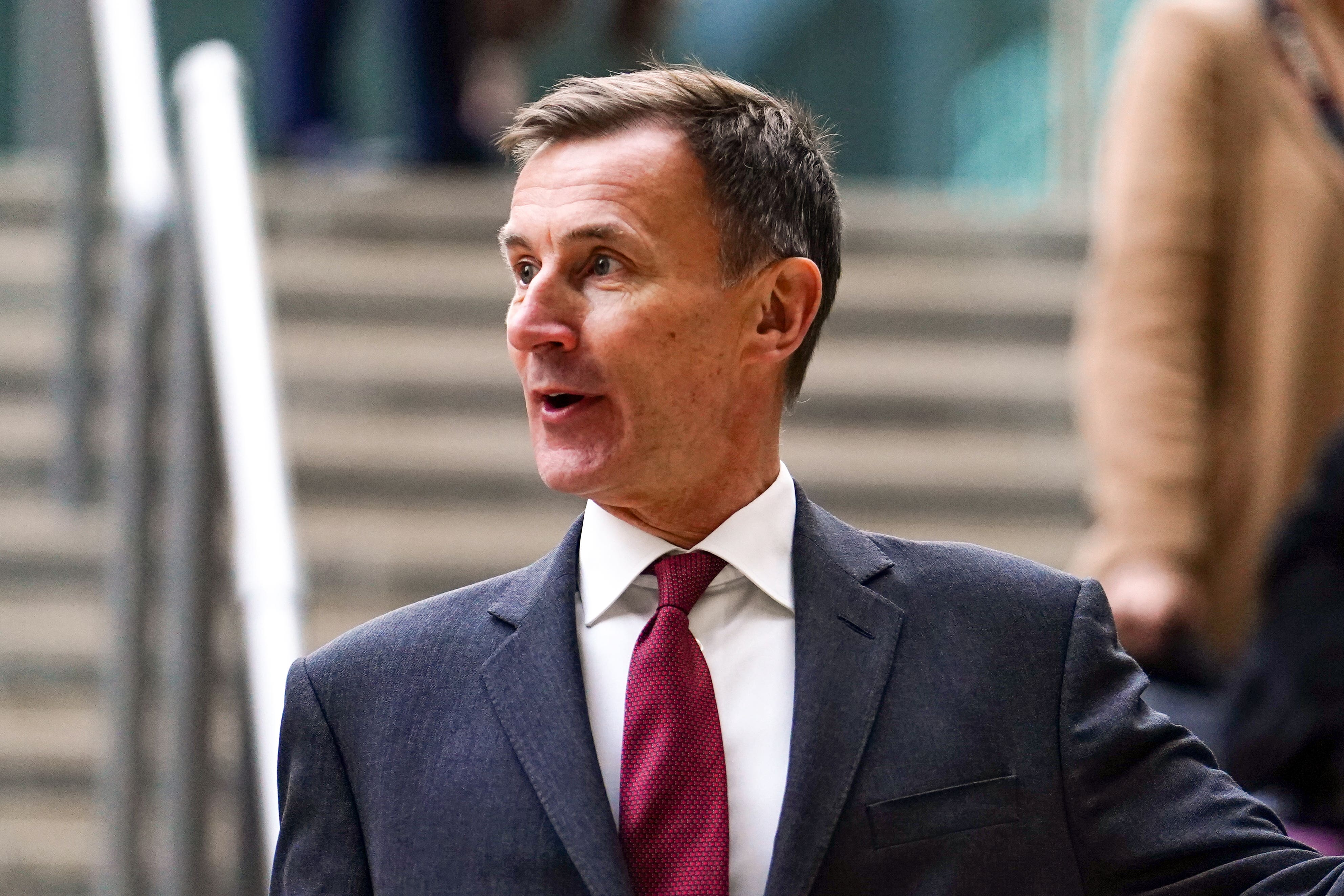If the economy is to improve, the government must put the work in
Editorial: The first task is to ensure that inflation returns to its target rate without crashing the economy still further

It would be churlish to deny that the fact of the UK having narrowly escaped recession in the opening months of 2023 is at least a glimmer of good news.
Were it not for the wave of strikes – whatever their inevitability or their merits – the economy would have performed a little better. There is some evidence that business investment has responded to the generous “super-deduction” tax allowance for new capital spending; and, more widely, the Bank of England has indicated that inflation and interest rate rises may well moderate in the coming months.
By the time of the coronation in the summer, inflation should be well on its way to halving, as Rishi Sunak has promised, and the festivities themselves will probably give tourism and retail sales a modest boost.
However, that is more or less where the good news ends. The general trend for economic output is firmly downwards. A recession in 2023, even if shallower than first feared, is as certain as any economic phenomenon can be; indeed, the drop in output in December of 0.5 per cent was worse than analysts had expected.
Higher interest rates are yet to make their full impact, and family budgets will face a further squeeze when tax hikes arrive in April, and with them a higher energy price guarantee, rising from an average of £2,500 to £3,000 – identified by Martin Lewis as a particular danger for poorer households.
As well as that, Brexit, long Covid, and the jump in people choosing earlier retirement are combining to constrict the labour supply and the ability of businesses to grow. Nor is there much sign of an end to the industrial action taking place in hospitals, schools, railways and elsewhere.
So the outlook is unavoidably glum. Given that the measure that could provide the biggest boost to growth – reversing Brexit – seems not to be a politically realistic option, Jeremy Hunt and Mr Sunak will have to find new levers to pull to get the economy growing again.
The first task is to squeeze the economy such that inflation returns to its target rate without crashing it still further. This means supporting the Bank of England, and ensuring that monetary policy isn’t undermined by tax cuts. Public spending will also have to remain constrained, though the case for a more generous settlement for NHS and care staff is strong.
Ministers will also have to revisit the supply of labour of all kinds from overseas. The flaw in the points-based migration system is the assumption that the UK only needs a relatively small number of students and skilled workers to meet its needs.
This is demonstrably failing, and whether the willing workers arrive from the EU or beyond, the British economy cannot grow without enough people to drive it forward. The labour shortage has driven labour costs and inflation higher, which is one reason why the rules need to be relaxed, and more work visas issued, as quickly as possible.
In the longer run, only a serious campaign of investment in new technologies and new industries can create a benign cycle of higher productivity, higher sales and exports, and higher wages and living standards, including quality public services and stronger defences. What the government can do is signal that investing in such a future is a national priority, which is why the creation of a ministry dedicated to science, innovation and technology is a hopeful development.
More substantive would be an extension of the successful super-deduction investment tax breaks (rather than crude cuts in corporation tax), and protecting as far as possible investment in transport and green infrastructure. This will cut energy bills for households and businesses alike, and help save the planet.
Politically, we may have to acknowledge that Brexit cannot be soon reversed, and that the “Brexit opportunities” are largely mythical. But that is all the more reason to make it work better, with marginal, incremental measures to abolish unnecessary frictions and barriers – not just for Northern Ireland, but for the UK as a whole.
There may be some fast-evolving internationally important sectors, such as fintech and AI, where regulation can be better designed to the UK’s advantage. Perhaps the putative free trade agreement with India, somewhat overdue, will hitch the UK to a dynamic, emerging market, though even this would be inadequate to make good the damage caused by Brexit.
Britain, in other words, does have some agency in its future – even post-Brexit, and even if the UK would be better off in the single market.
Things can get better; however, it will be a long slog.
Join our commenting forum
Join thought-provoking conversations, follow other Independent readers and see their replies
Comments
Bookmark popover
Removed from bookmarks